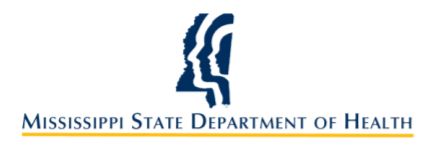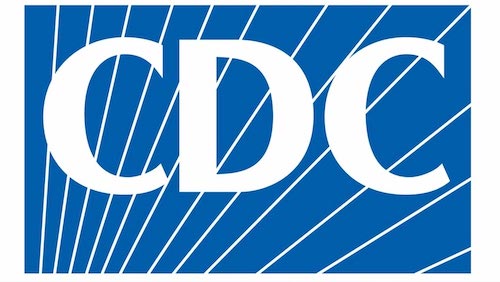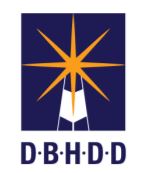ORISE Bioinformatics Fellowship (Part-time), CDC
Category : Student Opportunities
-
An application
-
A current resume/CV, including academic history, employment history, relevant experiences, and publication list
-
One educational or professional recommendation. Your application will be considered incomplete, and will not be reviewed until one recommendation is submitted.
- Access the application link here.
All documents must be in English or include an official English translation.
*Applications will be reviewed on a rolling-basis.
CDC Office and Location: A research opportunity is currently available with the Molecular Epidemiology and Bioinformatics Team (MEBT) of the Laboratory Branch (LB) in the Division of HIV Prevention (DHP), National Center for HIV/AIDS, Viral Hepatitis, STD, and TB Prevention (NCHHSTP) at the Centers for Disease Control and Prevention (CDC) in Atlanta, Georgia.
The mission of MEBT is to develop, evaluate, and apply bioinformatics and molecular tools to characterize and interrupt HIV transmission, and to assess infection and risks of emerging retroviruses in humans.
Research Project: The fellowship offers the opportunity to join a high-priority, high-impact project to end the HIV epidemic in the U.S. This is an exciting opportunity to participate in a team developing bioinformatics tools and platforms for the analysis and visualization of HIV transmission networks. The participant will enhance their career and advance the mission of the CDC within DHP’s LB to help develop bioinformatics tools/platforms for the analysis and visualization of transmission networks, including development of methods to improve data integration and analysis, and interpretation of phylogenetic, network, and epidemiologic, clinical and antimicrobial treatment data. The participant will gain experience in developing bioinformatic tools and identifying meaningful cluster characteristics and trends in subgroups at local and national levels. This research will provide CDC with a better understanding of HIV transmission in communities and will permit better utilization of resources to target specific prevention efforts. The new tools will also facilitate providing guidance to state and local health departments for responding to transmission clusters. In this role, the participant will have the opportunity to collaborate with internationally renowned bioinformaticians and laboratory and epidemiology scientists at the CDC.
Learning Objectives:
- Contributing to the development of novel bioinformatics tools for integrating data, and characterizing and visualizing HIV transmission networks
- Applying machine learning methods to determine best variables for detecting transmission clusters
- Participating in multidisciplinary research projects involving molecular epidemiology and bioinformatics
- Participating in the training of scientists in the selection and use of bioinformatics tools/platforms
- Collaborating with external and internal stakeholders
- Participating in application of bioinformatics methods to pathogen outbreaks
- Preparing manuscripts describing new pipeline and/or analysis of pathogen data
- Gain experience communicating research results through conference presentations, scientific publications and/or project reports
Mentor(s): The mentor for this opportunity is Bill Switzer (bis3 [at] cdc [dot] gov). If you have questions about the nature of the research please contact the mentor(s).
Anticipated Appointment Start Date: August 2, 2021. Start date is flexible and will depend on a variety of factors.
Appointment Length: The appointment will initially be for one year, but may be renewed upon recommendation of CDC and is contingent on the availability of funds.
Level of Participation: The appointment is part-time (20 hours per week).
Participant Stipend: The participant will receive a monthly stipend commensurate with educational level and experience.
Citizenship Requirements: This opportunity is available to U.S. citizens and Lawful Permanent Residents (LPR) only.
ORISE Information: This program, administered by ORAU through its contract with the U.S. Department of Energy (DOE) to manage the Oak Ridge Institute for Science and Education (ORISE), was established through an interagency agreement between DOE and CDC. Participants do not become employees of CDC, DOE or the program administrator, and there are no employment-related benefits. Proof of health insurance is required for participation in this program. Health insurance can be obtained through ORISE.
Questions: Please visit our Program Website. After reading, if you have additional questions about the application process please email ORISE [dot] CDC [dot] NCHHSTP [at] orau [dot] org and include the reference code (CDC-NCHHSTP-2021-0180) for this opportunity.
Qualifications
The qualified candidate should be currently pursuing or have received a master’s or doctoral degree in one of the relevant fields. Degree must have been received within the past five years.
- Bioinformatics, molecular epidemiology experience (phylogenetics, phylodynamics, networks)
- Network theory and artificial intelligence (machine learning) experience
- Relevant experience in bioinformatics analysis or scientific computing
- Experience with scripting languages such as R, bash, Perl, Python, or R Shiny
- Experience with one or more variation of Linux Operating Systems (e.g. Ubuntu, RedHat, CentOS). Knowledge with Linux command line
- Strong written and verbal communication skills
- Knowledge of bioinformatics applications and analysis, particularly as it pertains to analysis of genomics data, including Next Generation Sequencing (NGS) platforms
- Experience operating next generation scientific instruments (e.g. Oxford Nanopore, Minions, Illumina)
Fellows will be working on the Ending the HIV Epidemic Initiative, which you can learn about here and development of the MicrobeTrace tool which you can learn about here.










Recent Comments